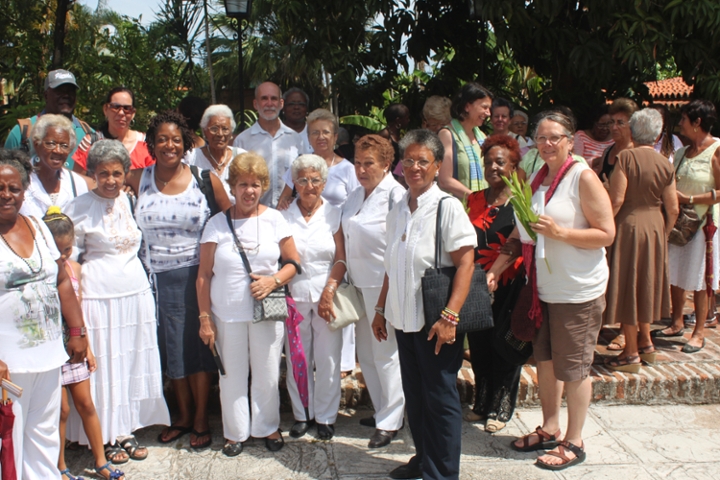Sharing experiences from Cuba
Nation and World
Each morning as Cindy Hunter left her hotel in Havana, she traveled down a beautiful coastal boulevard lined with old, colorful buildings and picturesque scenery.
“There is a simple beauty in Cuba that is easy to romanticize,” Hunter said. “The streets are very clean. You don’t see a bunch of trash lying around. Because of governmental control, there is very little violence or theft or drugs. But you also don’t see a lively market economy.”
As a member of the Council on Social Work Education, the accrediting agency for social work education in the U.S., Hunter spent 10 days this past summer in Havana participating in research and exploring potential partnerships. She and 12 other social work educators from the United States met with faculty from the University of Havana, social workers in diverse government programs, and the Cuban Society of Social Workers in Health Care. They also visited research centers and community development programs. The trip was sponsored in part by JMU's Office of International Programs and the Department of Social Work.
“We visited a government-sponsored senior center where they had poetry, writing, crafts and a choir. The center implemented a curriculum for elder people to learn how to talk to younger people about the revolution,” she said. “They were promoting this passing of Cuban history.”
“There is a simple beauty in Cuba that is easy to romanticize,” -- Cindy Hunter, associate professor of social work
Hunter also observed differences between social work education in the U.S. and Cuba. Social work in the U.S. involves educating students for practice in agencies and government systems, usually with a specific population, she said, while in Cuba the field is more community-based, generalized, prevention-oriented and not bound by what a specific agency does.
“When Cuba’s School of Social Work was still active, they would train people for only six months before sending them out into different communities to conduct needs assessments and then students would continue their education while they were practicing,” she said.
Although Hunter and her fellow educators were given a structured agenda, they could tell that the island was on the cusp of change. “When the Soviet Union collapsed, the Cuban economy faltered and people had to really tighten their belts. For many years all they had were ration books to buy what they needed. But now even those ration books are not enough to live on. Some people are venturing into more of a free-market economy. In Havana, a taxi driver can purchase an old car and drive up and down the boulevard carrying tourists and end up making more money than a doctor.”
Her colleagues on the trip provided another level of education.
“The person I roomed with was a researcher, so we had many intense conversations about what we were observing,” Hunter said. “It was a really diverse group of culturally and racially diverse people, and that turned out to add an amazing level of education to the trip itself. I didn’t expect that piece of the trip, and it was a really pleasant surprise.”
###
Lori News (’15) and Jordan Bogner (’15)

